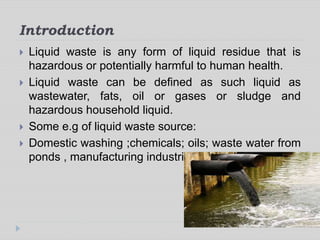The 5-Minute Rule for Reclaim Waste
The 5-Minute Rule for Reclaim Waste
Blog Article
The 25-Second Trick For Reclaim Waste
Table of ContentsWhat Does Reclaim Waste Mean?The 20-Second Trick For Reclaim WasteWhat Does Reclaim Waste Do?The Ultimate Guide To Reclaim WasteThe smart Trick of Reclaim Waste That Nobody is Talking About
Domestic sewer waste refers to the waste and products from a household septic tank. The appropriate management and disposal of domestic sewage waste call for fluid waste to be transferred to a sewer treatment plant where the proper techniques and tools are applied to detoxify and dispose of waste.
Commercial waste frequently includes possible hazards, such as flammable materials or a blend of fluid and strong waste products, and needs an advanced and comprehensive disposal procedure. The disposal of business waste commonly includes the purification of waste before transportation to make certain risk-free and correct disposal. Industrial waste is produced from results and runoff of industrial processes and manufacturing.
This kind of waste can not utilize the exact same sewage management transportation or procedures as septic or commercial liquids. The hazardous waste monitoring process requires the assessment and screening of fluid waste prior to it undergoes the disposal procedure (liquid waste disposal melbourne). Drainage waste is the liquid waste that originates from drainage and excess stormwater in highly booming locations or cities
Runoff waste can create contamination and flooding otherwise handled correctly. Discover more concerning sewage system cleansing and waste management. Guaranteeing correct waste administration can avoid catastrophes and lower environmental harm. Both people in household setups and experts in industrial or manufacturing sectors can profit from understanding the processes and laws of fluid waste monitoring.
Reclaim Waste Things To Know Before You Buy
Contact PROS Providers today to discover concerning our waste management and disposal solutions and the proper methods to take care of the fluid waste you produce.
(https://www.twitch.tv/reclaimwaste1/about)Do you know what takes place to your water when you end, flush the bathroom or drain pipes the washing maker? No? Well, it's worth recognizing. This supposed 'wastewater' is not only an important source but, after therapy, will be launched to our land, waterways or the sea. Utilized water from commodes, showers, baths, kitchen area sinks, laundries and commercial processes is referred to as wastewater.

water used to cool equipment or tidy plant and equipment). Stormwater, a form of wastewater, is overflow that moves from agricultural and city locations such as roofing systems, parks, yards, roads, paths and seamless gutters into stormwater drains, after rainfall. Stormwater flows unattended directly to local creeks or rivers, ultimately getting to the ocean.
The Buzz on Reclaim Waste
In Queensland, a lot of wastewater is dealt with at sewage treatment plants. Wastewater is transported from residential or industrial websites through a system of drains and pump terminals, called sewerage reticulation, to a sewage treatment plant. Neighborhood federal governments construct, keep and run most sewer therapy plants. Operators are accredited under the Environmental Defense Act 1994 to release cured wastewater at an appropriate ecological criterion right into rivers.
The Division of Natural Resources suggests regional governments regarding managing, operating and keeping sewerage systems and treatment plants. In unsewered areas, city governments might need householders to mount specific or family sewage treatment systems to treat residential wastewater from bathrooms, kitchens, shower rooms and laundries. The Division of Natural Resources authorises the use of home systems when they are shown to be effective.
Many stormwater receives no therapy. In some new subdivisions, therapy of some stormwater to eliminate clutter, sand and crushed rock has started utilizing gross pollutant catches. Wastewater treatment takes place in four phases: Gets rid of solid matter. Bigger solids, such as plastics and other objects wrongly discharged to sewage systems, are eliminated when wastewater is gone through screens.
Makes use of tiny living microorganisms recognizes as micro-organisms to damage down and remove continuing to be dissolved wastes and fine fragments. Micro-organisms and wastes are incorporated in the sludge.
The Buzz on Reclaim Waste
Nutrient removal is not offered at all sewage therapy plants since it calls for pricey specialised equipment. It is becoming much more typical in Queensland. Clear liquid effluent created after therapy may still include disease-causing micro-organisms. If this effluent is released into waterways such as rivers or the sea, the micro-organisms will ultimately die out.

This generally suggests wastewater has actually to be dealt with or contaminants gotten rid of before it can be discharged to waterways. Many wastewater flows right into the sewage system. Under the Act, regional governments carry out approvals and licences for environmentally relevant tasks (ERAs) involving wastewater launches that might have a neighborhood influence. The division administers authorizations and licences to ERAs entailing wastewater releases that could have a local or statewide effect.
The Main Principles Of Reclaim Waste
Surveillance provides accurate information regarding water high quality and can validate that permit conditions are being satisfied. The info acquired with surveillance provides the basis for making water quality choices.
Report this page